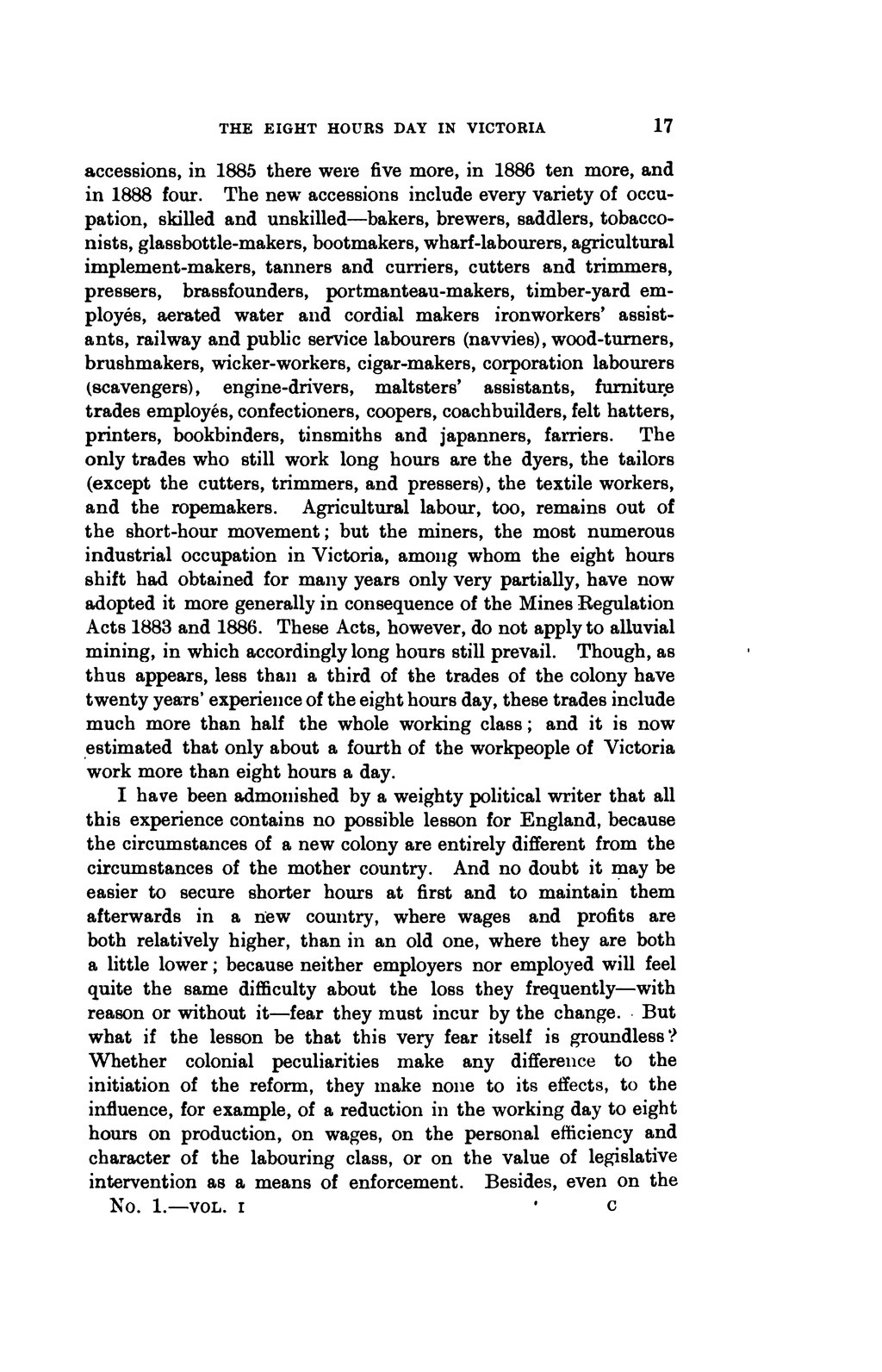accessions, in 1885 there were five more, in 1886 ten more, and in 1888 four. The new accessions include every variety of occupation, skilled and unskilled—bakers, brewers, saddlers, tobacconists, glassbottle-makers, bootmakers, wharf-labourers, agricultural implement-makers, tanners and curriers, cutters and trimmers, pressers, brassfounders, portmanteau-makers, timber-yard employés, aerated water and cordial makers, ironworkers' assistants, railway and public service labourers (navvies), wood-turners, brushmakers, wicker-workers, cigar-makers, corporation labourers (scavengers), engine-drivers, maltsters' assistants, furniture trades employés, confectioners, coopers, coachbuilders, felt hatters, printers, bookbinders, tinsmiths and japanners, farriers. The only trades who still work long hours are the dyers, the tailors (except the cutters, trimmers, and pressers), the textile workers, and the ropemakers. Agricultural labour, too, remains out of the short-hour movement; but the miners, the most numerous industrial occupation in Victoria, among whom the eight hours shift had obtained for many years only very partially, have now adopted it more generally in consequence of the Mines Regulation Acts 1883 and 1886. These Acts, however, do not apply to alluvial mining, in which accordingly long hours still prevail. Though, as thus appears, less than a third of the trades of the colony have twenty years' experience of the eight hours day, these trades include much more than half the whole working class; and it is now estimated that only about a fourth of the workpeople of Victoria work more than eight hours a day.
I have been admonished by a weighty political writer that all this experience contains no possible lesson for England, because the circumstances of a new colony are entirely different from the circumstances of the mother country. And no doubt it may be easier to secure shorter hours at first and to maintain them afterwards in a new country, where wages and profits are both relatively higher, than in an old one, where they are both a little lower; because neither employers nor employed will feel quite the same difficulty about the loss they frequently—with reason or without it—fear they must incur by the change. But what if the lesson be that this very fear itself is groundless? Whether colonial peculiarities make any difference to the initiation of the reform, they make none to its effects, to the influence, for example, of a reduction in the working day to eight hours on production, on wages, on the personal efficiency and character of the labouring class, or on the value of legislative intervention as a means of enforcement. Besides, even on the

